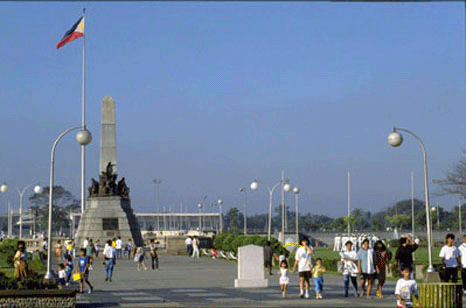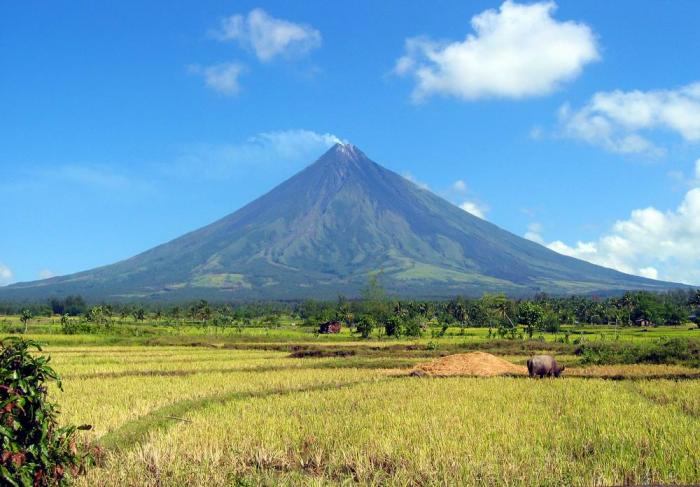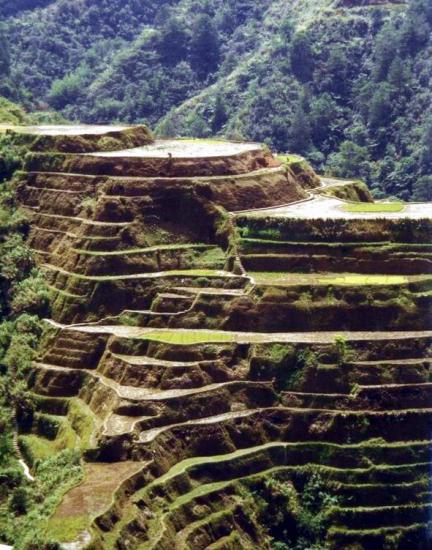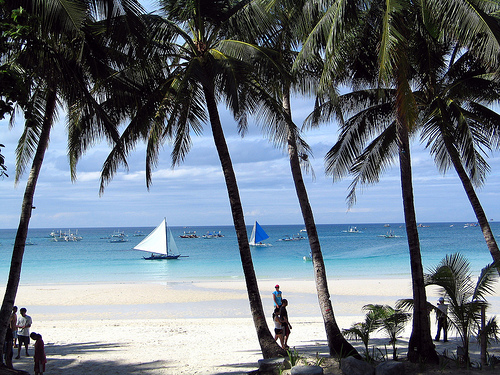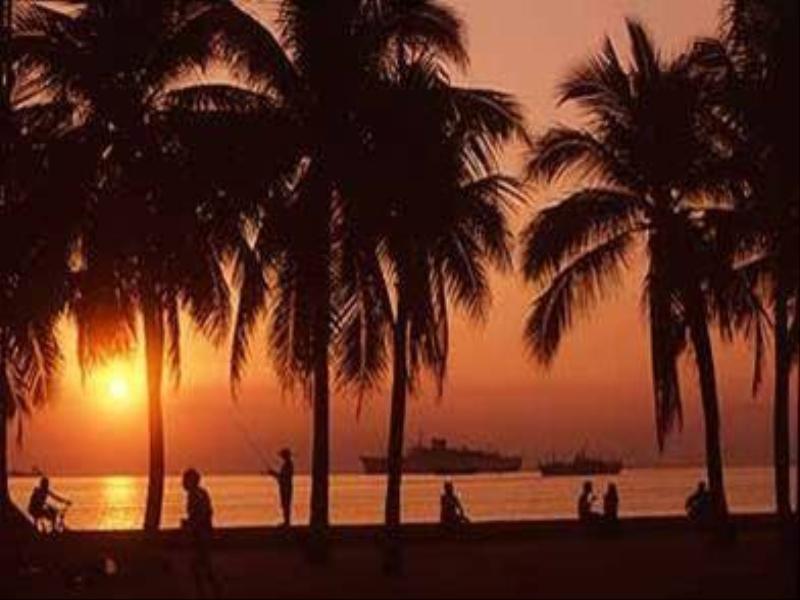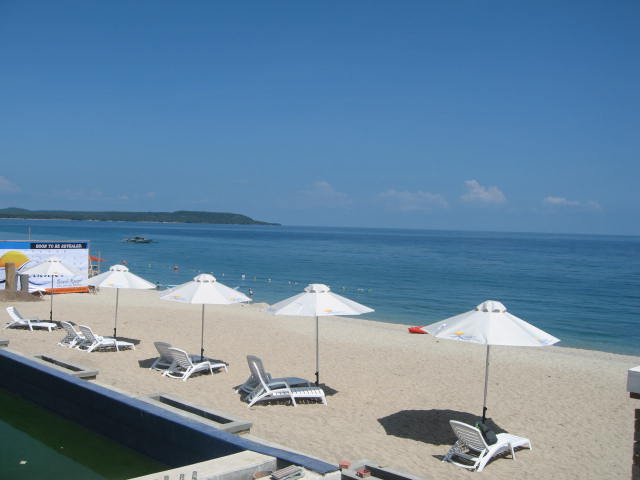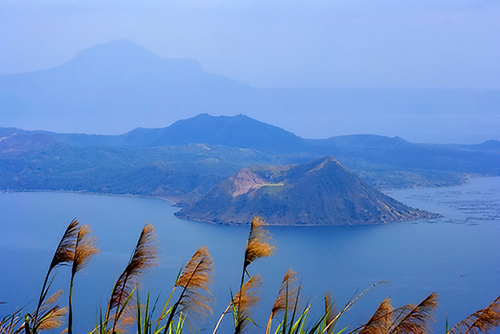Archive for the ‘Cordillera Administrative Region (CAR)’ Category
AMAZING PLACES IN MOUNTAIN PROVINCE
(aside from the rice terraces)
Bontoc Museum
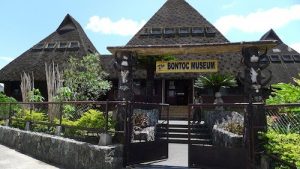 Photo from: https://outoftownblog.com/stopover-in-bontoc-mountain-province/
Photo from: https://outoftownblog.com/stopover-in-bontoc-mountain-province/
The museum, structured in a way to resemble an Igorot house, was established by Mother Basil Gekiere (a Bontoc resident for 56 years, she died in 1983) and run by the Belgian ICM missionaries. It aims to preserve a varied collection of authentic artifacts and photos reflecting the culture of the mountain tribes. Its exhibits present a good overview of the differences and similarities between the mountain tribes in 3 well-laid out and labeled rooms, one each for the Ifugao, Bontoc and Kalinga artifacts. It consists of a group of miniature traditional houses, a collection of rocks and fossils from different parts of the Cordilleras and old photos (including some of the Igorot headhunting days). As before, photography is not allowed inside. Read More: http://benjielayug.com/2013/03/bontoc-museum-mountain-province.html
Alab Petroglyphs
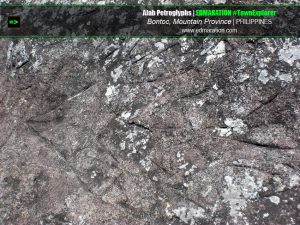 Photo from: http://www.edmaration.com/2013/05/philippine-summer-season-for-town.html
Photo from: http://www.edmaration.com/2013/05/philippine-summer-season-for-town.html
Undecipherable, there is no accurate tool to decode and interpret the ancient markings etched on the surface of a boulder situated on a promontory. However, there are theories and legends. Carbon dating has calculated the age of these petroglyphs. They have been carved sometime not earlier than 1500 B.C. So that would be 3000+ years old. Read More: http://www.edmaration.com/2013/07/alab-petroglyphs8.html
Ganga House & Burial Cave
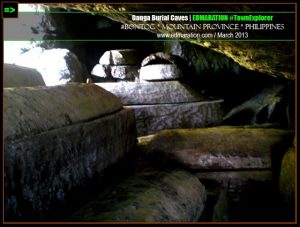 Photo from: http://www.edmaration.com/2013/07/ganga-cave-alab-bontoc.html
Photo from: http://www.edmaration.com/2013/07/ganga-cave-alab-bontoc.html
Ganga Caves, that is the beautiful name of the mass grave of the legendary group of people that once inhabited the village of Alab in the town of Bontoc. Based on the stories passed through generations, Ganga Caves (collectively) is where young men and women who lived before recorded history were laid to rest.
These are the same people believed to be the hands behind the Alab Petroglyphs on which according to the legend, died because of unwittingly hitting a supernatural being with an arrow. Read More: http://www.edmaration.com/2013/07/ganga-cave-alab-bontoc.html
Chico River
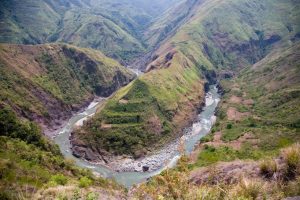 Photo from: https://www.pinterest.com/pin/157414949447914033/
Photo from: https://www.pinterest.com/pin/157414949447914033/
The Chico River, Rio Chico de Cagayan, is a river system in Kalinga, a landlocked province of the Philippines’ Cordillera Administrative Region.
It is referred to as a “river of life” for the Kalinga people who live on its banks, and is well known among development workers because of the Chico River Dam Project, an electric power generation project which local residents resisted for three decades before it was finally shelved in the 1980s – a landmark case study concerning ancestral domain issues in the Philippines.
The Chico has a length of 174.67 kilometers and is a tributary of the Cagayan River. Its highest headwaters begin at Tinoc, Ifugao; Buguias, Benguet; and Mountain Province, and its tributaries are the Bunog River to the south, The Tanudan and Biga Rivers to the east, The Mabaca and Saltan Rivers to the North, and the Pasil River further downstream. Read More: https://greedypeg.org/kalinga/Chico-River-and-Watershed.html
Sumaguing Cave
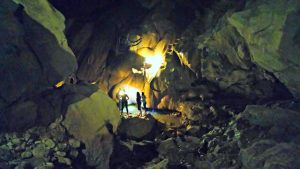 Photo from: https://nicerioadventures.blogspot.com/2018/01/mt-province-sumaguing-cave.html
Photo from: https://nicerioadventures.blogspot.com/2018/01/mt-province-sumaguing-cave.html
Aside from the “hanging coffins” of Sagada, she is also globally renowned for her most mysterious caves. This is no other than the beautiful and endearing Sumaguing Cave. Come and let us explore the hidden secrets of Sumaguing Cave, through this very informative travel article which will not only reveal the greatest treasures of this fine tourist attraction of Luzon; but also how it had drastically changed the lives and culture of the Sagada tribes and its people. To date, many travelers across the globe have sensibly reiterated time and again that their vacation and sojourn itineraries will not be complete if they will not drop by and brilliantly unearth this tourist spot from its enthralling entrance, until they have safely reached the innermost part of the famous Cave of Sumaguing In Sagada. Over the years, the overwhelming creation and popularity of this hole has made Mountain Province a par excellence point of interest like no other, in the Asian hemisphere. Therefore, the Cave of Sumaguing In Sagada has been deservingly referred to as “The Big Cave”. Read More: http://driftwoodjourneys.com/sumaguing-cave-in-sagada-mountain-province/
Bomod-ok Falls
The Bomod-Ok Falls soars some 200 feet high in the air with waters cascading down into a cool green pool underneath. The water basin is quite deep and according to one of my travel companions who swam all the way across it, has an undercurrent in its middle part.
Since the country has not had rainfall for quite sometime, the amount of water surging down the cliff is not as impressive as it is during the wet months where whole precipice is covered with hard rampaging waters. Swimming is not allowed during the rainy seasons however.
Those who are not really adept at swimming can still enjoy the shallow part of the water near its edges, but for folks who are adventurous enough, a 20-foot high platform at the base of the waterfall serves as a diving point. To get there, you have to climb an almost vertical rock face and risk breaking your neck, should you happen to slip. Read More: https://www.lakadpilipinas.com/2010/04/sagada-bomod-ok-falls.html
Lumiang Burial Cave
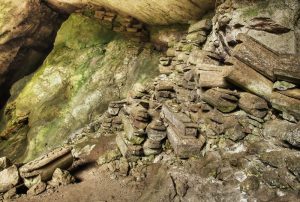 Photo from: https://www.doctortaylorphotography.com/Travel/Philippines/i-GVHkMmp/
Photo from: https://www.doctortaylorphotography.com/Travel/Philippines/i-GVHkMmp/
The Lumiang Burial Cave is located just a short distance north of Sumaguing Cave on the Suyo Road. We needed to do a short trek (passing through spectacular scenery of karst formations intermingled with clusters of pine trees on the hillsides) before reaching the entrance to the cave with its collection of coffins. If you’re the adventurer type you can do the 4 hour cave connection by descending through Lumiang Cave and exiting through Sumaguing. Again a guide is an absolute must for this adventure and you will need to go rappelling on some sections. We opted instead for the easier trek down Sumaguing Cave first, hopped aboard our rented vehicle for the 5-minute ride to Lumiang and trekked to the latter where we were able to view the stack of coffins without having to go inside the cave itself. Many of the coffins (the older ones) seem unusually short but we later learned that this was because the bodies were traditionally placed in a fetal position. Newer coffins have the bodies laid out in the more conventional way and are therefore longer. Read More: http://shoestringtravelers.com/responsive/sagada.php
Echo Valley & The Hanging Coffins
Echo Valley is a good introductory walk in Sagada, and a must for anyone visiting the town for the first time. It gives you a good introduction to the area and it is a nice walk taking in some pleasant scenery, including, of course, the famous hanging coffins. Read More: http://www.lakwatseradeprimera.com/sagada-finding-our-way-through-echo-valley/
Tappiyah Falls
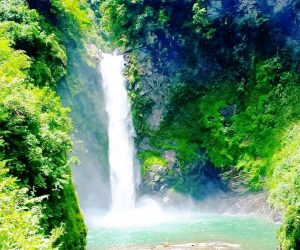 Photo from: http://www.cordilleranow.com/swimming-destinations-in-ifugao/
Photo from: http://www.cordilleranow.com/swimming-destinations-in-ifugao/
Lake Danum
To end our second day trip in Sagada, we went to Lake Danum to watch the sunset(and yes that’s the only reason why I went there. I am very fascinated with sunset for some reasons I don’t know why). Lake Danum is about 4kms away from Sagada Town. If you are used to running or long walks, it is possible to walk all the way from the town center to the Lake but we get there with the private van that we hired since it’s included in our itinerary.
Our driver dropped us off first at the Lake to have a photo. It is a small lake surrounded by pine trees and it has the most relaxing atmosphere I’ve ever felt. The place is also perfect for camping or picnic and serves as the jump-off point to Mt. Ampacao trek. Read More: https://marlakwatsera.wordpress.com/2016/10/12/that-place-called-sagada-lake-danum-sunset-kiltepan-peak-sunrise/
Pongas Falls
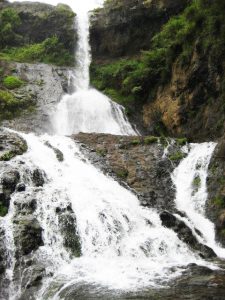 Photo from: https://atnaive.wordpress.com/tag/cordillera/
Photo from: https://atnaive.wordpress.com/tag/cordillera/
Just another waterfall, I was skeptical on our second day in Sagada. But Pongas Falls inclines to a different story.
Mt. Ampacao
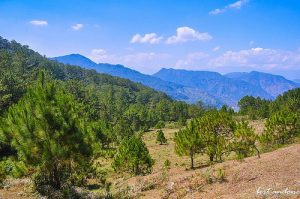 Photo from: http://www.flickriver.com/photos/92065706@N08/35704309032/
Photo from: http://www.flickriver.com/photos/92065706@N08/35704309032/
Rising above the highland town of Sagada, famous for its natural and cultural wonders, is its highest point, Mt. Ampacao. Laden with pine trees, this mountain offers a beautiful overview of Sagada. It only takes 90 minutes to reach the summit on average pace. The ‘ranch’, a viewpoint two-thirds up gives beautiful views of nearby villages and mountains, especially on the western side, where one can already see the mountains straddling Ilocos Sur and the Abra-Mt. Province boundary. The panorama includes Mt. Polis (SE), Bessang and Mt. Tirad, site of the famous Tirad Pass (E) and Mt. Sipsipitan (N). Read More: http://www.pinoymountaineer.com/2008/01/mt-ampacao-1889.html
TABLE OF CONTENTS
Mountain Province is in the Cordillera Administrative Region
Where is Mountain Province and How to Get There
Mountain Province – Home of Many Rice Terraces
Awesome Rice Terraces at the Mountain Province
Other Amazing Places in Mountain Province
Colorful Festivals and Events in Mountain Province
Can We have Fun in Mountain Province?
Products and Industry in Mountain Province
Other Visitors Also Viewed:
Malajog Beach, Ridge Nature Park and Zipline In One Place
Be Amazed at the Nueva Ecija “Taong Putik” (Mud Man) Festival
Take the Day Off and Relax at the Minalungao National Park in Nueva Ecija
Palawod Festival Celebrates the Town’s Fish Bounty
Colorful and Meaningful Festivals and Events in Guimaras
Get Inside the 800-Meter Cantabon Cave Part 2
Mt. Malindig – a Popular Mountain Climb in Marinduque
The Untouched Natural Beauty of Camotes Island
Lanzones Festival – Thanksgiving Celebration for the Sweet Fruit
Come and Celebrate Aggao Nac Cagayan

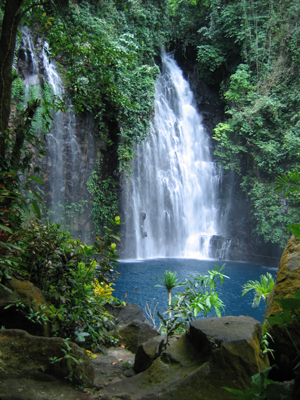
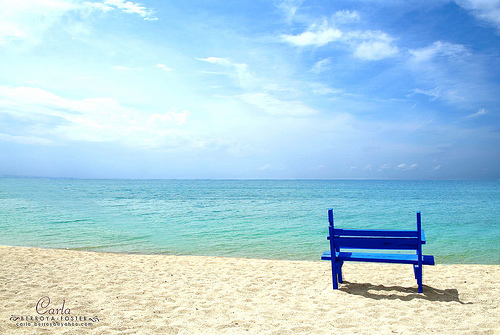
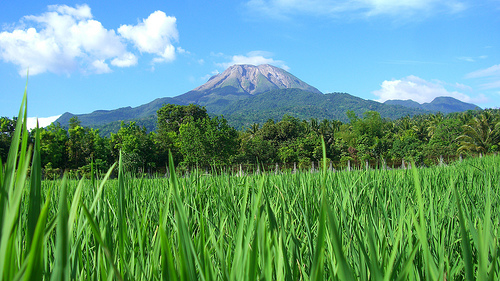
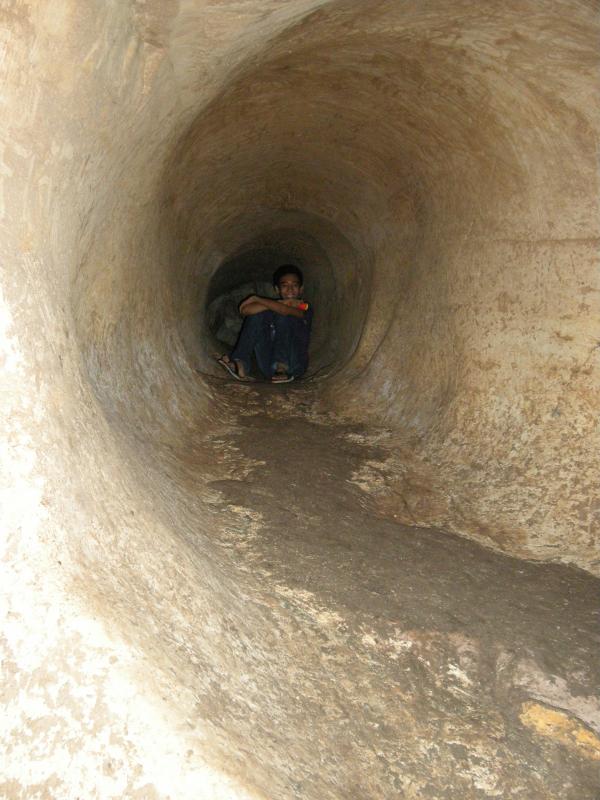
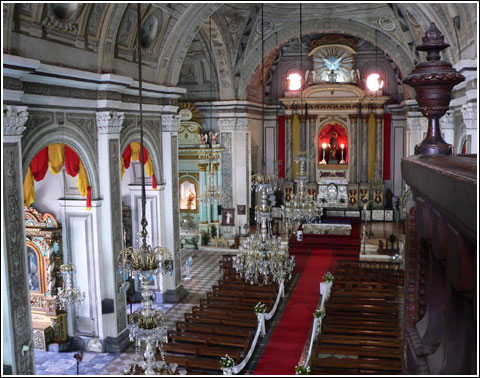
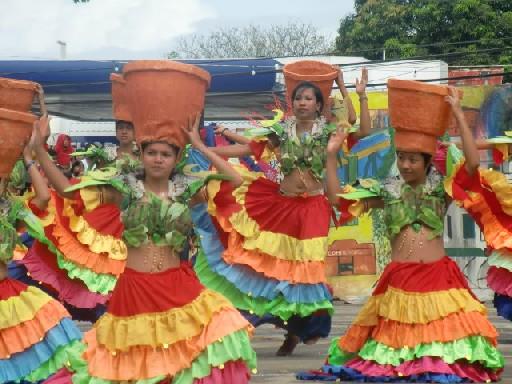


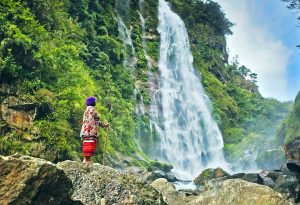 Photo from:
Photo from: 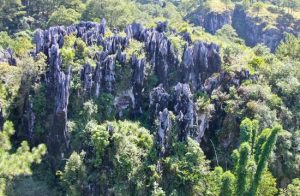 Photo from:
Photo from: 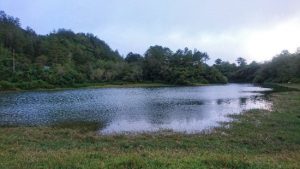 Photo from:
Photo from: 